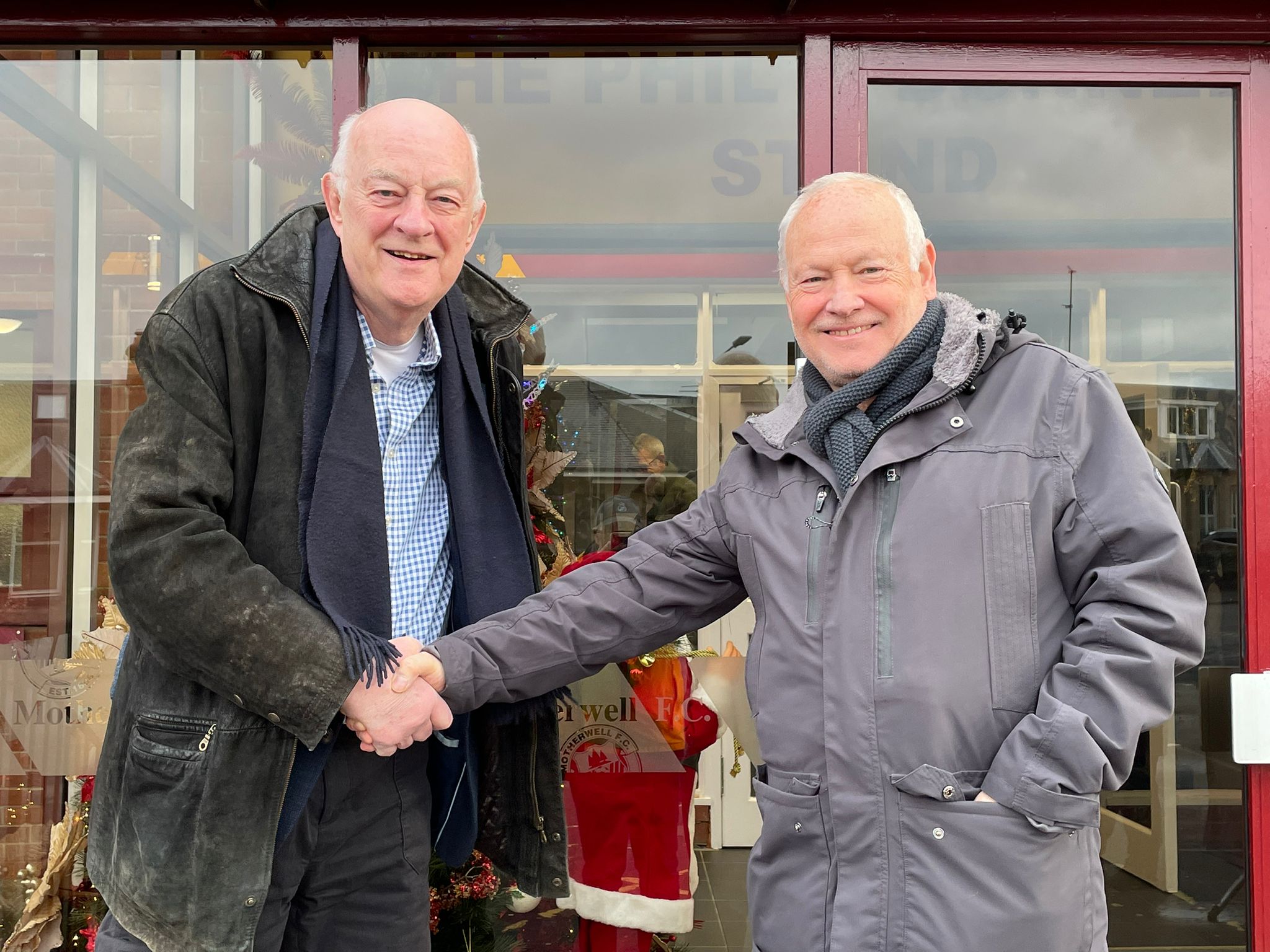At Fir Park last Saturday, history came alive in a heartwarming meeting between two descendants of early Motherwell FC legends.
Norman Quirk, the great-grandson of Sergeant Major Thomas J. Quirk, and Hugh Ferguson, the grandson of the club’s legendary striker Hugh Ferguson, shook hands and reminisced on their families’ remarkable contributions to the club.
Sergeant Major Thomas J. Quirk: A Founding Father of Modern Motherwell
Sergeant Major Thomas J. Quirk, born in 1852 in Hull, might not have been a natural football man—his first loves were cricket and rugby.
But as a soldier-turned-publican, Quirk’s leadership and organisational skills soon found a home in Motherwell FC.

By 1902, he had become Vice-President, and in 1905, as the club transitioned to a Limited Company, he joined the board as a director.
His influence grew, and by 1910 he was Chairman, leading the club until 1914.
Quirk’s tenure laid the groundwork for Motherwell’s growth. His military discipline and vision helped steer the club through its formative years, including a significant change in 1913 when he presided over discussions about altering the club’s colours from blue to the iconic claret and amber.

Quirk’s influence extended beyond Fir Park, serving as Vice-President of the Scottish League. He passed away in 1917, leaving a legacy of stability and progress.
For Norman Quirk reconnecting with the club offers a poignant reminder of his grandfather’s role in shaping its early identity. “He was more than a Chairman; he was a pioneer,” Norman said. “I’m very proud of my great grandfather and delighted that my son Derek is as enthusiastic about following in his great, great grandfathers’ steps as I am and continuing the Quirk legacy at Motherwell Football Club”.
A frequent visitor to Fir Park ensures that the Quirk family’s connection to Motherwell remains as strong as ever.
Hugh Ferguson: The Steel Town’s Goal-Scoring Machine
Few names resonate in Fir Park’s history like Hugh Ferguson’s. Born and bred in Motherwell, Ferguson joined the club in 1916, kicking off an extraordinary career that would cement him as one of the finest goal-scorers in Scottish football history.

His debut season saw him score an impressive 25 goals, and he only got better from there on.
Over a decade, he netted an astonishing 284 goals in 346 appearances, including a 43-goal haul in the 1920-21 season—an era-defining achievement. He was the Erling Haaland of his time.
Ferguson’s playing style was a blend of power, precision, and tactical intelligence. He wasn’t the fastest or the most flamboyant, but he knew how to score and lead the line.
His exploits didn’t go unnoticed beyond Scotland; Manchester City and other English clubs came calling, but Ferguson remained loyal to his hometown club until 1925, when he moved to Cardiff City.

He continued his prolific form, famously scoring the winning goal in the 1927 FA Cup Final, making Cardiff the only team outside England to lift the trophy.
Hugh Ferguson’s grandson, also named Hugh, proudly reflected on his family’s connection to the club. “My grandfather wasn’t just a great player; he was a gentleman. His record and legacy speak for themselves,” he said.
The Ferguson family remains deeply involved with Motherwell, Honouring their ancestor’s place in the club’s lore.
A Shared Legacy
The meeting between Norman Quirk and Hugh Ferguson at Fir Park was more than just a handshake; it was a bridge between two eras of Motherwell’s rich history.

The Quirk and Ferguson families continue to honour their ancestors’ contributions, ensuring their legacies endure in the hearts of Motherwell fans.
For the club, these personal connections are a powerful reminder of its deep roots in the community. As the modern team battles on the pitch, the stories of figures like Quirk and Ferguson inspire players and fans alike, reminding them that they stand on the shoulders of giants.
Motherwell’s history is not just a collection of records and trophies but a living, breathing narrative passed down through generations. And thanks to families like the Quirks and Fergusons, that story continues to thrive.

